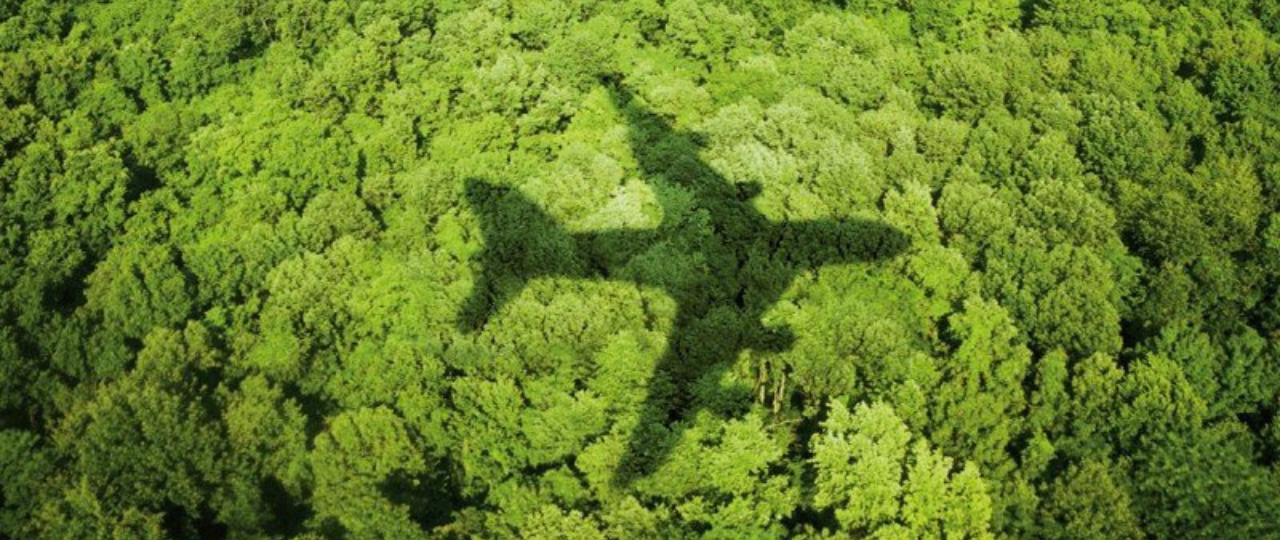
The skies, with us
What is the future of commercial aircraft? The transition to sustainable aviation is already part of our present.

What is the future of commercial aircraft? The transition to sustainable aviation is already part of our present.
In recent years we have seen the transport industry evolve towards a greener and more environmentally friendly path, such as hybrid and electric cars and low-emission public transport. These changes are the result of growing global concern about the way we consume both products and services. How is this affecting the aviation industry? Can emissions be reduced? Is there such a thing as "green" fuel?
Manufacturers, airlines, and energy companies are working hand in hand with a common goal: to achieve zero CO2 emissions from aircraft by 2050. This goal is accompanied by numerous modifications; not only in terms of fuel type but also in technical aspects of aircraft design with the aim of creating a new generation of more sustainable and efficient aircraft. These changes will be implemented as long as quality and passenger comfort is not sacrificed.
Unlike the rest of the transport industry, electric energy is not a completely valid alternative for aviation. Despite advances, today's batteries still cannot generate and store enough energy for long routes.
So what is the alternative to electric batteries and conventional fuel?
Airlines are turning to a fuel called SAF (Sustainable Aviation Fuel), which is capable of reducing emissions into space by 34% in Europe by 2050. SAF is largely developed from biomass and low-carbon feedstocks to ensure that carbon dioxide emissions produced during the combustion of the fuel are kept to a minimum. For sustainable aviation to be used in aircraft, it must have "drop-in" characteristics, i.e. it can be used automatically in existing aircraft technology and its performance must be comparable or superior to that of existing fossil fuels during the combustion process.
The development of biokerosene (biojet), produced from biological waste, and synthetic paraffin (e-jet), made from captured CO₂ and renewable hydrogen, is already in use. With an emissions reduction of between 65% and 100% compared to conventional paraffin, both are the most immediate alternatives for decarbonising the sector. In Spain, the first biojet-powered flight took place in 2011 thanks to a joint initiative between Iberia and Repsol. In 2020, the energy company was able to manufacture, from biomass, the first two batches of biojet for the domestic market, which avoided the emission of more than a thousand tonnes of CO2, the equivalent of 95 flights between Madrid and Barcelona. It should be added that the European Union (EU) has set a target for 63% of aviation fuel to be sustainable by 2050.
Another example of the use of this type of environmentally friendly fuel is the Chinese airline "Hainan", which stands out for having made the world's first transoceanic flight in 2017 using biokerosene made from recycled cooking oil on a trip between Beijing and Chicago.
In terms of improvements in aircraft technical systems, major international manufacturers are developing more fuel-efficient engines. Airbus, in collaboration with Rolls-Royce, is in the process of building the world's largest aircraft engine, known as the UltraFan. This new engine is capable of improving fuel efficiency by 25%. In other words, the sum of green fuel and the use of this type of engine would reduce CO2 emissions to levels never seen before.
The transition to a greener mode of transport is of vital importance. At Europair, we advocate caring for our planet as much as possible and we believe that the future of aviation must be environmentally friendly.
At Europair we are aware of the impact generated by the industry in which we work. Due to this situation, we offer the possibility of flying with operators that are already compensating the carbon footprint of their operations, and we continue to look for ways to generate less and less impact.
If you are interested in chartering an aircraft with these features, please contact us at web@europair.es or call +34913952025 and we will provide you with all the necessary information.



